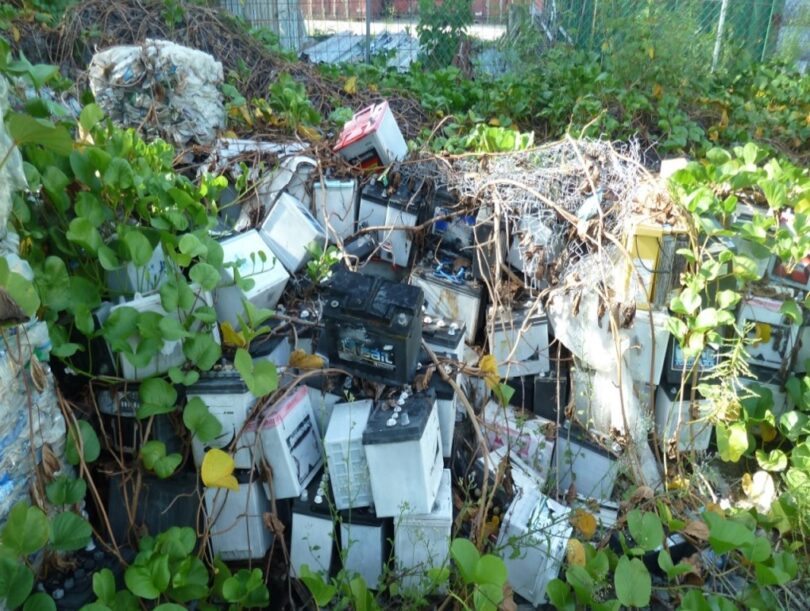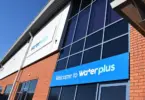A commercial operation to recycle used lead-acid batteries in Kiribati, where 7000 tonnes of toxic waste has been removed from the island over a twenty year period, could be replicated and used in other Pacific nations to manage hazardous wastes.
Kiribati’s lead-acid battery recycling system was highlighted at the Fourth Clean Pacific Roundtable in Funafuti Tuvalu as an innovative practice already effectively implemented to address the island’s pressing environmental challenges.
“Lead acid batteries are some of the most common toxic chemicals you’ll find around people’s normal living environment in the Pacific,” said Mr Alice Leney, of Kiribati Solid Waste Management Programme. “They are a hazardous waste but they are quite valuable. So what we needed to do was create an incentive for people to bring them back in.”
That value was set 20 years ago when Kiribati developed its Kaoki Mange Container Deposit Legislation. The recycling system, operated under contract by a private sector business, functions as a recycling system for lead-acid batteries.
“Essentially with regards to lead-acid batteries, it’s a five dollar flat rate. It doesn’t matter what kind of battery, and the money goes into this Special fund,” explained Mr Leney. “When the battery comes over the border, it pays five dollars into the Fund and this is collected by Customs. When your battery is dead, you can bring it in for recycling and the recycler pays you five dollars.
“The recycler will then go to the Fund to claim for all the batteries that he bought. That means he gets the battery which actually still has good value, he can pack the batteries and export them and make his money.”
On average, Kiribati exports about 20 tons of batteries once every six months, mostly to Australia and Asia. Mr Leney added that it is a win-win situation for everyone.
“I think the crucial thing here at CPRT is to show something that is operated at a commercial level that has no government support apart from setting up the legislation, has worked well for twenty years, and that in itself is a good proof of concept,” said Mr Leney.
“We are quite keen to share that with other people, and other countries who may not have a battery recycling system. Our message is that is fairly simple to get it off the ground.”
In terms of the broader picture, Mr Leney said Kiribati’s lead-acid battery recycling system is only part of bigger national effort to keep Kiribati Clean.
“For Kiribati waste is a challenge, we have a rapidly growing population, a rapidly expanding economy, it’s very small land, we need more landfill, we need better waste collection and we need more recycling,” he said. “The crucial thing for Kiribati is that we see the CPRT as the forum where we share experiences, get exposed to new ideas, make connections with people and strategise about the future.
“Crucially when we set up the Container Deposit legislation for the batteries twenty years ago, we were also thinking of one day we can also put the end of life vehicles into it, and here we are today, twenty years later, we’re at the point where we are getting ready to propose to the government to change the regulation to put end of life vehicles into it. So it’s that strategic thinking we do have when we come to the CPRT which is what it’s all about.”
Mr Leney was amongst speakers featured during the hazardous waste management session designed to provide a platform for knowledge exchange and discussion on the management of hazardous wastes focusing on specific challenges faced by Pacific island nations, such as used oil, asbestos, healthcare waste, and waste batteries.
The session explored effective strategies for mitigation and remediation, highlighting regulatory frameworks, safe removal and disposal techniques, and treatment and disposal methods.
The Fourth Clean Pacific Roundtable (CPRT) facilitated by the Secretariat of the Pacific Regional Environment Programme (SPREP) is hosted by Tuvalu from 5 – 9 August 2024.
The Roundtable is intended to provide a vehicle to disseminate outcomes, promote regional collaboration and resource complementarity, and expand networking opportunities to assist Pacific Island countries and territories in the delivery of safe and sustainable waste management practices. It will also prevent pollution-related issues that impact the health of the ocean and communities within the region.
It is attended by the Cook Islands, Fiji, French Polynesia, Kiribati, Marshall Islands, Nauru, Niue, Palau, Papua New Guinea, Samoa, Solomon Islands, Tonga, Tuvalu and Vanuatu.
For more details and the programme, click: https://www.sprep.org/4th-clean-pacific-roundtable
Related articles:
Rechargeable battery manufacturers rely on accurate humidity measurements







